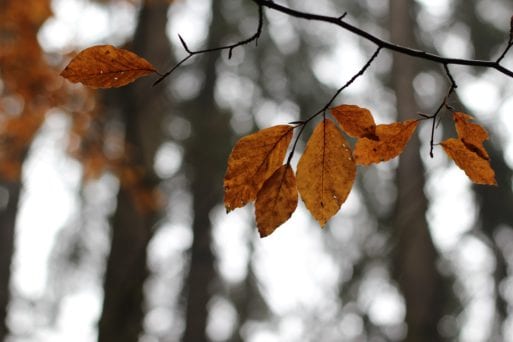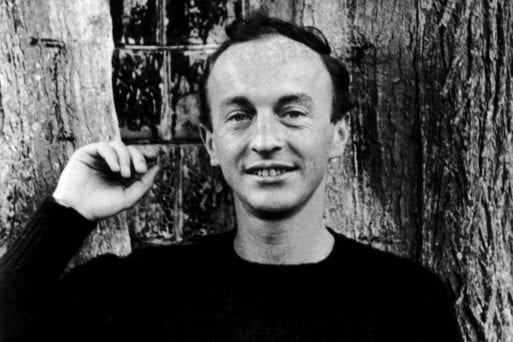
Frank O’Hara was a mid-20th century New York poet who did not follow traditional poetic form. Instead, his poetry was conversational, deeply personal, and often experimental. To read a Frank O’Hara poem is to experience an intimate conversation that feels real and present and unfettered by conventions. His 1951 piece, known simply by “Poem” and its first line of “If I knew exactly why the chestnut tree” provides just that experience.
O’Hara begins the 9-stanza poem discussing the seasonal changes that happen in the natural world. As he observes, those changes are put in motion by the inevitability of death. This brings him to muse whether or not he wants to try to explain that to the reader:
If I knew exactly why the chestnut tree
seems about to flame or die, its pyramidsacquiver, would I tell you? Perhaps not.
He goes onto compare the change in the tree to changes in human-made objects that we “must keep interested in”— railway schedules, baseball scores, foreign stamps. This comparison could be seeking to show how everything (the natural world and the human-made) changes and dies in its own way; it can’t be avoided. Again, O’Hara debates whether or not to try to explain or rationalize why this happens.
I
could tell you too much for either of us
to bear, and I suppose you might answerin kind. It is a terrible thing to feel
like a picknicker who has forgotten his lunch.
We could try to make sense of change and rationalize death, but to what end? Here Frank O’Hara brings in an image of someone (a picknicker) who has arrived somewhere beautiful but is unable to enjoy it because instead he is focused on his forgotten lunch. This brings up the question: Would focusing on making sense of change prevent us from enjoying the beauty of change itself?

Frank O’Hara
Credit: John Jonas Gruen/Hulton Archive
O’Hara goes on to imply that we could try to save the tree (and everything else) from death and from change — but, again, to what end? He faces this head-on in the final four stanzas:
And everything will take care of itself,
it got along without us before. But goddid it all then! And now it’s our tree
going up in flames, still blossoming, as ifit had nothing better to do! Don’t we have
a duty to it, as if it were a gold minewe fell into climbing desert mountains,
or a dirty child, or a fatal abscess?
When Frank O’Hara talks of duty, he perhaps speaks to our feelings of helplessness at the changing of the tree and also our sense of responsibility. Wouldn’t we take care of “our tree” the same way we would a child in a need or a treatable medical emergency?
But that is where the difference lies. With the line “as if it had nothing better to do,” it seems that Frank O’Hara wants us to see the tree’s change, observe it, experience it, and accept it. The tree (and everything) will change — no matter if we can make sense of it, and no matter if we try to change it. And perhaps the real risk lies in wasting time attempting to rationalize life and death and change, rather than simply experiencing and observing their mutable beauty.

 “Poem (If I knew exactly why the chestnut tree)” by Frank O’Hara
“Poem (If I knew exactly why the chestnut tree)” by Frank O’Hara


 “Help Me, Helen”
“Help Me, Helen”
 Recovering Cremation Remains After the Los Angeles Fires
Recovering Cremation Remains After the Los Angeles Fires
 “As Tears Go By” by Marianne Faithfull
“As Tears Go By” by Marianne Faithfull














